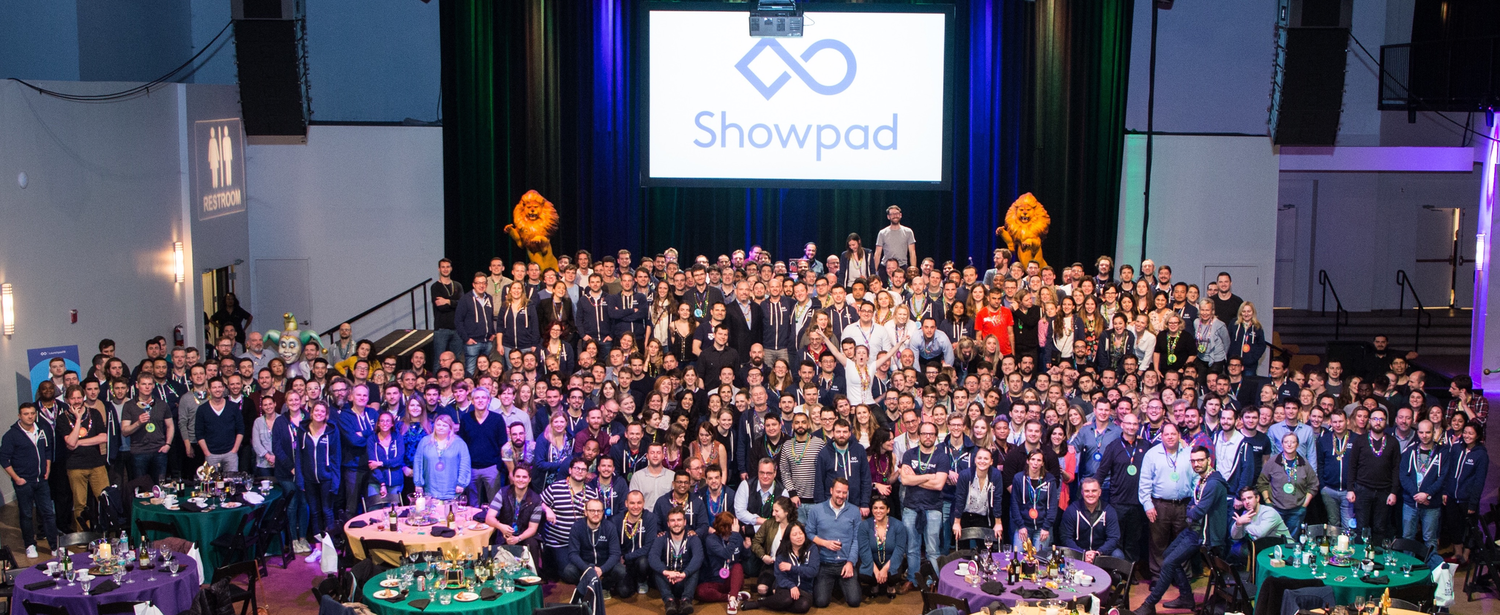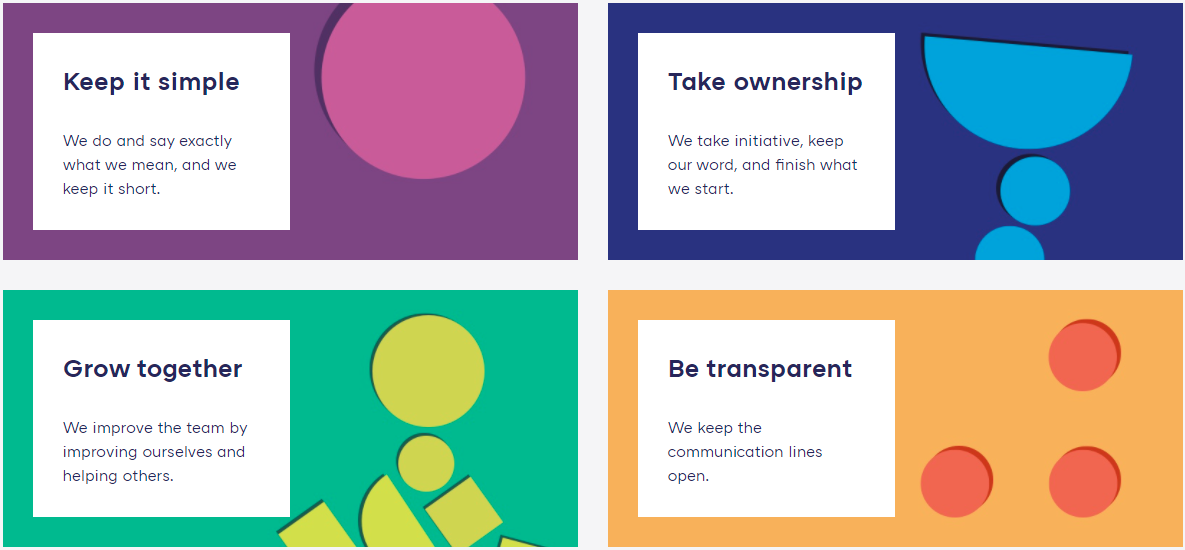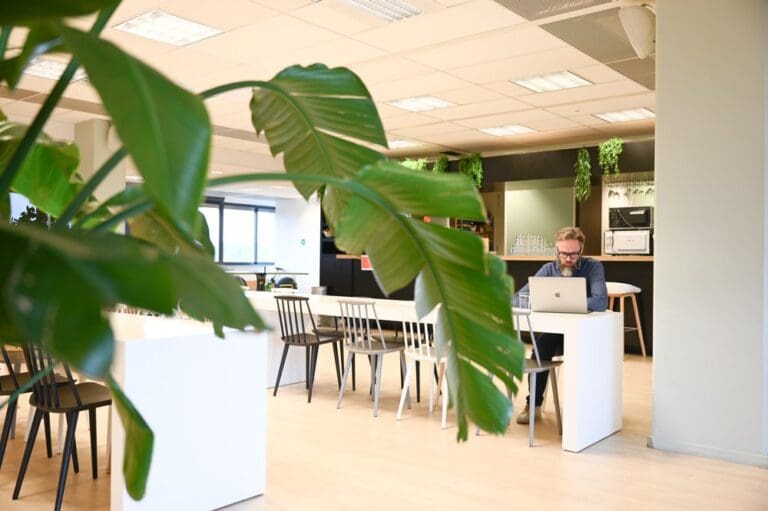Whether you’re looking to build your own team or perhaps looking at ways to hold existing or future employers accountable on D&I – there’s plenty of lessons to be learnt from Lieven Baeyens, SVP Product & Engineering.
Lieven, why don’t you tell us a little bit about your background and your current role?
For the last three years, I’ve been leading the product and engineering organisation at Showpad.
It’s been a, quite a journey over those three years. We have over 200 people in the organisation, with our engineering team mainly split over three locations. But now one out of three new hires is fully remote.
As you see from the colour of my hair, I’ve been in business for a while! This year it will be 30 years, with about eight different companies – a real variety of sizes, cultures, different kinds of setups. So my experience is definitely far-reaching and broad.
A key highlight for me throughout those 30 years is when I was studying computer science. I never thought that I would end up in the people business.
You see, here’s the thing about tech: It’s not simply about tech, it’s about people. I love that technology creates a way to lower the threshold on being “creative”, “entrepreneurial” and is a great place for introverts. It’s also all about connecting people.
What has kept you in it all these years?
I always come back to the joy of using tech to solve real world problems. In tech, your career gradually moves from enjoying the energy you get from creating beautiful things to starting to see the bigger picture; how that code can impact businesses and people.
I once had a leadership coach ask me how I defined myself, professionally. And the truth is, I was struggling with finding a balanced position between the leadership roles and then still being a software developer. That was kind of a switching point. He asked me, do you see yourself still as a programmer? Or do you see yourself as an engineering leader? And I have to admit, I hadn’t made a choice yet. I still saw myself as a programmer, but in reality I was now a leader – of people.

So can there be a conflict between hands on programming and people leadership?
Definitely – in order for you to traditionally become senior and a leader, you have to say goodbye to that more ‘hands-on’ creativity. And for many people, it is a very hard choice. There is no right or wrong answer. It’s really an individual choice you need to make, and you can’t really advise people in that area. Um, because it’s, it’s so personal and it’s kind of a one-way door decision. It’s very difficult to meaningfully combine the two broad responsibilities in a day-to-day role.
The other challenge is the fact that technology is evolving so quickly. If you stop programming for five years and tomorrow, it would be difficult just to pick up and start again. The technology scene has changed completely. Of course, the basic principles remain the same. But there’d be a lot of learning you’d to go through to catch up again with, with all the new technologies and innovation and development that happens.
So, essentially – a leadership role is a fundamentally different type of role from a programming one.
At Showpad, how do you support potentially aspiring managers in making that decision?
We make sure this isn’t a binary choice. Because it’s hard for most to really imagine doing the role until they get stuck in and give it a go. It’s important to give people the opportunity to have a taste of what it is like to be a team leader and things like that. But we always provide a safety net – we give them the opportunity to go back if their conclusion is that they want to stick with the more technical work.
This, for me, is really important – because there isn’t really any other useful advice other than “just give it a try”.
 Showpad’s Values: Achieve maximum impact
Showpad’s Values: Achieve maximum impact
At Showpad, you want to “empower people to be at their best” – in practical terms, how do you do that?
Lead by example
During my three years at Showpad there’s been a lot of change. When I first joined, a senior female leader took 3 weeks of holiday to be with her young family. When one of my male team members had their first child I absolutely insisted they took all the parental leave that they could; it’s important for me as a male executive to set an example about work life balance for my male peers.
Acknowledge our privilege
As executive sponsor of Diversity & Inclusion at Showpad – for me, it’s all about becoming aware of, then acknowledging and being open about one’s privilege. Even though it’s a very uncomfortable and constantly evolving kind of conversation. I’m a white male. I’m very privileged. I was born in a Western European country. I strongly believe that starting to be more aware about those privileges is that first step towards inclusion.
Nearly everyone has some experience of being less privileged than someone else. Using that empathy to be mindful about how other s less privileged than you may feel is really important.
Be vulnerable
Committing to this means feeling comfortable in feeling vulnerable and being open to making mistakes. Leaders like me must be held accountable when it comes to using their privilege to help others to get a seat at the table and be heard. For me, inclusion is all about feeling welcome and feeling like you are enough.
As Diversity and inclusion Exec Sponsor, what initiatives have you been involved in?
I’ve been encouraging a move away from focusing exclusively on the computer science degree as a talent indicator. From my experience, this can leave us in a dead-end street without any creativity. We’ve reviewed the already-defined career paths for engineers, leaders, product managers etc, which focus for the most part on Scrum, language skills and core tech competencies. The key has been to add those softer skills into the equation. These are the skills that individuals use to help their teams and ultimately, the business, scale and grow. With prospective candidates, we now like to ascertain how they act as a team member, how they help their colleagues grow, what the senior candidates think they can learn from the junior folk…
I’ve been working to broaden our focus beyond core tech skills towards what kind of business impact and personal growth our people want to have. I personally wanted to drive this forward as a means to positively impact the diversity and inclusion within our business.
But actually, I’m happy to say that while I’m officially the sponsor of D&I, this is no longer just a side project for one person – this is an active conversation held regularly by the whole executive team. And I’m so proud of the transition that we have made.

What do you think men in tech should be doing to advocate for women?
Firstly, it starts with doing that work gain awareness of privilege. I encourage men to take a step back and question – “what are the things that brought you to your success? Why are you an engineering director, for example? What brought you here? What role has your own privilege played?”
Secondly, it’s about broadening your view on the skills needed for a successful career, whether that’s a technical career or a leadership career. As I’ve previously mentioned, this is all about having that conversation, that skill matrix that goes beyond core technical skills and is more about softer, equally important skills that help businesses scale.
Thirdly, it’s important to move away from deeply ingrained gender stereotypes. We must acknowledge that we’ve all been told for years and years that women are nurturing and men are good at tech – but let’s simply focus on fundamental skills we need to scale.
Lastly, we need to take responsibility and accountability for becoming aware and being proactive in making change. Change happens fastest and more effectively with collaboration and allyship.








